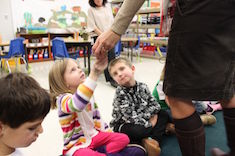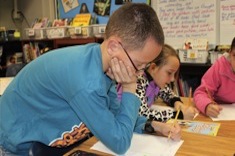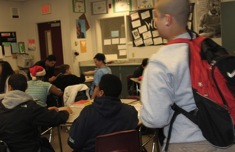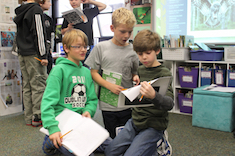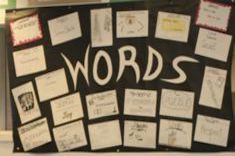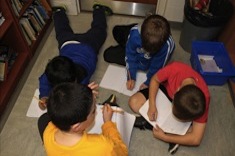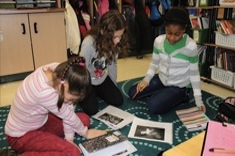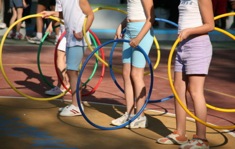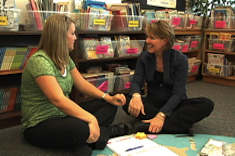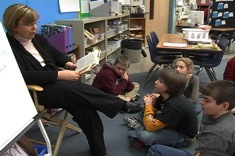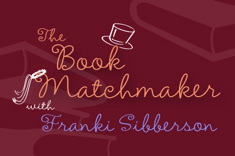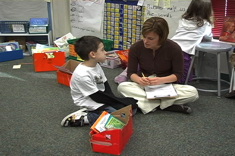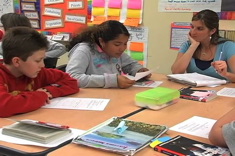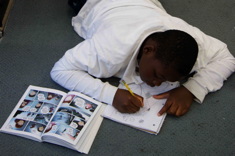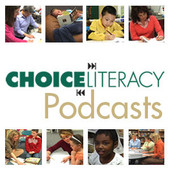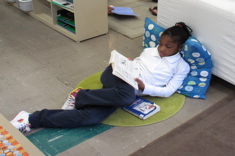Struggling and Striving Learners
It's hard work, it matters . . . and nothing brings more joy than reaching a child who is struggling. The problem is each of these students presents a unique array of challenges and needs that don't allow for a uniform approach. Here are the stories from our contributors of their breakthrough moments, one child at a time.
Latest Content
Supporting Introverts in Literacy Workshops
Kim Campbell has suggestions for ways teachers can help introverts have more say in literacy workshops.
Slow Thinkers
Gigi McAllister realizes she is a slow thinker, and this makes her reconsider some of her classroom practices to support children who need more time to respond.
What Kenny Taught Me
Jennifer Schwanke has a student who just won’t sit still and behave appropriately in her middle school classroom. She finally gives up. That’s where the learning begins.
Top 10 Intermediate Books for Boys
Katherine Sokolowski finds many of the boys in her classroom love to read about violence, weapons, and crude humor. She challenges teachers to appreciate boys’ interests and set some of our own criticism aside.
The Case Against Management Systems
Katherine Sokolowski advises teachers to ditch the search for the perfect management system, and instead focus on building relationships early in the school year.
Tutoring Ruth: Designing an Assessment
Max Brand continues his new tutoring series. In this installment, he designs a creative intake assessment for Ruth, a first grader who struggles with following directions.
The Rapid Reader: Tutoring Esther
Max works with Esther, a third grader who takes pride in being a rapid reader and rarely pauses to make sense of the text.
Supporting Struggling Readers: David’s Story
Katie DiCesare has wise advice for helping readers who are falling behind their peers but don't qualify for additional services.
Brave Noah
Ruth Ayres tells the story of Noah, a brave first grader with a hard home life who has few happily ever afters as a writer.
Expanding the Literacy Classroom with Flipped Minilessons
Katharine Hale tries some flipped minilessons in her fifth-grade classroom and explains how technology is providing new opportunities for student learning.
Grouping Struggling Students for Word Study: A Case Study
Shari Frost considers the “go-to” instructional strategy for struggling readers, word study, and explores how to make it work well in a case study of a third-grade group.
Using Shared Writing to Build Argument Skills
Shari Frost explains the power of shared writing in intermediate classrooms, especially for struggling learners.
Shared Reading in the Intermediate Grades
Shari Frost explains why shared reading is valuable for older students, with examples of the practice in the intermediate grades.
Embracing the Growth Mindset with Audiobooks
Jennifer Vincent explains how recorded texts were a potent tool for reaching a struggling fourth-grade reader.
Just-Right Poetry and Individualizing Instruction
Shari Frost describes how a sixth-grade teacher provides a range of poetry options to meet the needs of all students.
Supporting the Transition to Middle School: An Elementary Teacher’s Perspective
Maria Caplin shares how and why she began to collaborate with Gretchen Taylor, a sixth-grade teacher who would soon be the middle school teacher for some of her students.
Reading as Reward
Principal Jennifer Schwanke finds herself on a mad dash to buy a baked potato for a struggling reader, and this is the moment that crystallizes for her everything that is wrong with most reading rewards (especially those involving food).
The Joys and Challenges of Co-Teaching
Katherine Sokolowski explores the challenges and joys of co-teaching with special education colleagues.
Interactive Read Alouds to Support Struggling Readers
Shari Frost explains how interactive read alouds are the “kickboards” of reading instruction, especially for struggling readers. She explains how one teacher used them to support a struggling reader in 3rd grade.
Reaching Evan with Read Alouds in the Intermediate Grades
Karen Terlecky reflects on the power of read alouds in the intermediate grades for welcoming older students who struggle with reading into the “club” of kids who love books.
Never Say Never: Motivation to Read from an Unlikely Source
Knock knock. Who’s there? A boy who loves sports and has no motivation for reading. Barclay Marcell discovers an unlikely source of engaging text for a child who just doesn’t enjoy books.
Book Matchmaker: “Cool” Books for a Struggling Second Grader
Franki Sibberson selects some “cool” books for a struggling reader who wants to fit in with his 2nd grade peers.
Helping Young Readers Become Independent
Teachers speak often about the importance of helping students become independent, but what does that look like in practical terms? Katie DiCesare considers her interactions with Evan, an emergent reader, on the road to independence.
Guiding a Struggling Middle School Book Club
What do you do about those book clubs that just don’t jell in your middle school classroom? Katie Doherty demonstrates how she guides a struggling group of sixth graders, helping them reflect and converse together.
Spelling Rules — Or Does It?
Heather Rader introduces a new spelling series and maps out the topics she’ll be tackling.
Classroom Gifts from Carlos: Helping Young Students Learn Academic Language and Routines
It can be especially difficult for young children from impoverished homes to understand academic language and the demands of school. Andie Cunningham observes the sophisticated ways a preschool teacher helps her students adapt with invitational language.
New Fiction for Boys (BOOKLIST)
It takes a kid at heart to share what young boy readers would take to heart, and Tony Keefer is just the guy for the job. Tony loves whonunits, blood ‘n’ guts, and cliffhangers, and he shares that passion with his tween students in this fiction booklist for boys.
Catching Struggling Readers Before They Fall with Pat Johnson and Katie Keier (PODCAST)
Pat Johnson and Katie Keier share their thoughts on how a comprehensive literacy approach best meets the needs of all learners, especially those students who struggle.
Motive, Means, and Opportunity
When educators have literacy-rich environments at home, it is important to consider students' daily access to reading materials. Ellie Gilbert uses motive, means and opportunity to think about our literacy landscapes.
Books Struggling Readers Can and Will Want to Read: Building the Classroom Library
Sammy is an avid reader in the classroom, but his teacher Cathy Mere notices he “accidentally” is always leaving the backpack with his intervention books behind. The challenge for classroom teachers is stocking books with titles that will interest Sammy, but still provide enough challenge and support to move him forward as a reader.
Browse Content By
Type
Category
- Assessment Tools
- Big Fresh Archives
- Booklists
- Choice Numeracy
- Classroom Design
- Common Core
- Community Building
- Conferring
- Content Literacy
- Digital Literacy
- English Language Learners
- Equity
- Family Relations
- Free Samples
- Guiding Groups
- Leadership
- Literacy Coaches
- Mentor Texts
- Minilessons
- New Teacher Mentors
- Podcasts
- Poetry
- Quote Collections
- Reading Strategies
- Self Care
- Struggling and Striving Learners
- Talking and Listening
- Teacher Study Groups
- Teaching Reading
- Teaching Writing
- Word Study and Vocabulary
Author
- Melissa Quimby
- Nawal Qarooni
- Gwen Blumberg
- Julie Cox
- The Lead Learners
- Hannah Tills
- Josie Stewart
- Ruth Metcalfe
- Mallory Messenger
- Becca Burk
- Jodie Bailey
- Vivian Chen
- Mary Brower
- Tiffany Abbott Fuller
- Stephanie Affinito
- Ruth Ayres
- Leigh Anne Eck
- Heather Fisher
- Shari Frost
- Julie Johnson
- Suzy Kaback
- Gigi McAllister
- Shirl McPhillips
- Melanie Meehan
- Cathy Mere
- Debbie Miller
- Tara Barnett and Kate Mills
- Tammy Mulligan
- Dana Murphy
- Bitsy Parks
- David Pittman
- Brenda Power
- Heather Rader
- Matt Renwick
- Mandy Robek
- Christy Rush-Levine
- Gretchen Schroeder
- Jen Schwanke
- Brian Sepe
- Katherine Sokolowski
- Stella Villalba
- Jennifer Vincent
Grade Level
Choice Literacy Membership
Articles
Get full access to all Choice Literacy article content
Videos
Get full access to all Choice Literacy video content
Courses
Access Choice Literacy course curriculum and training

